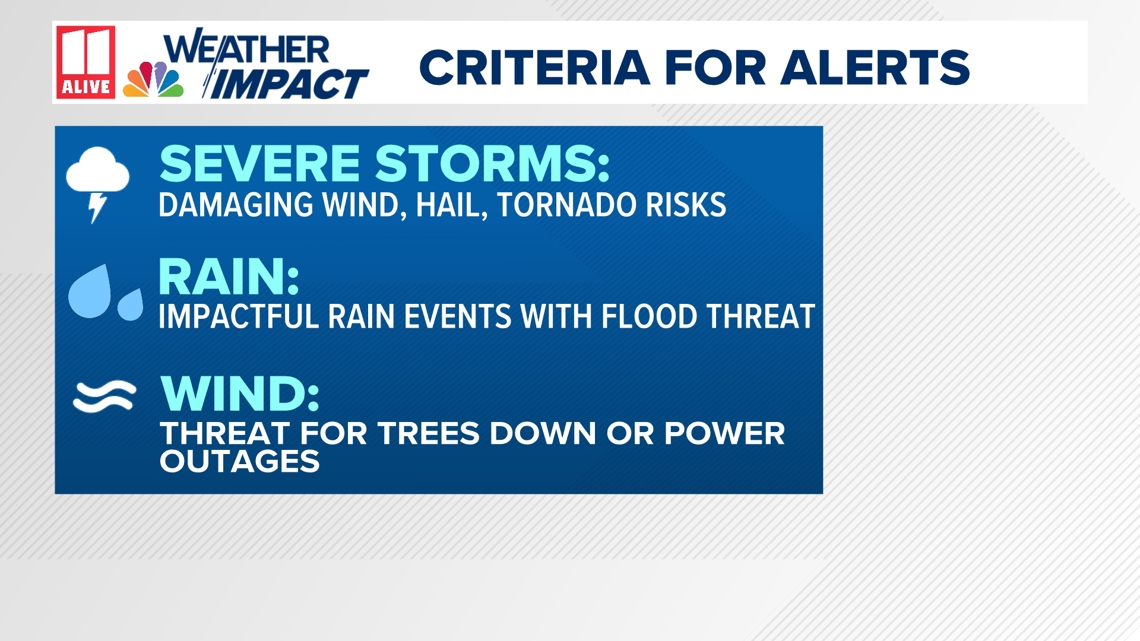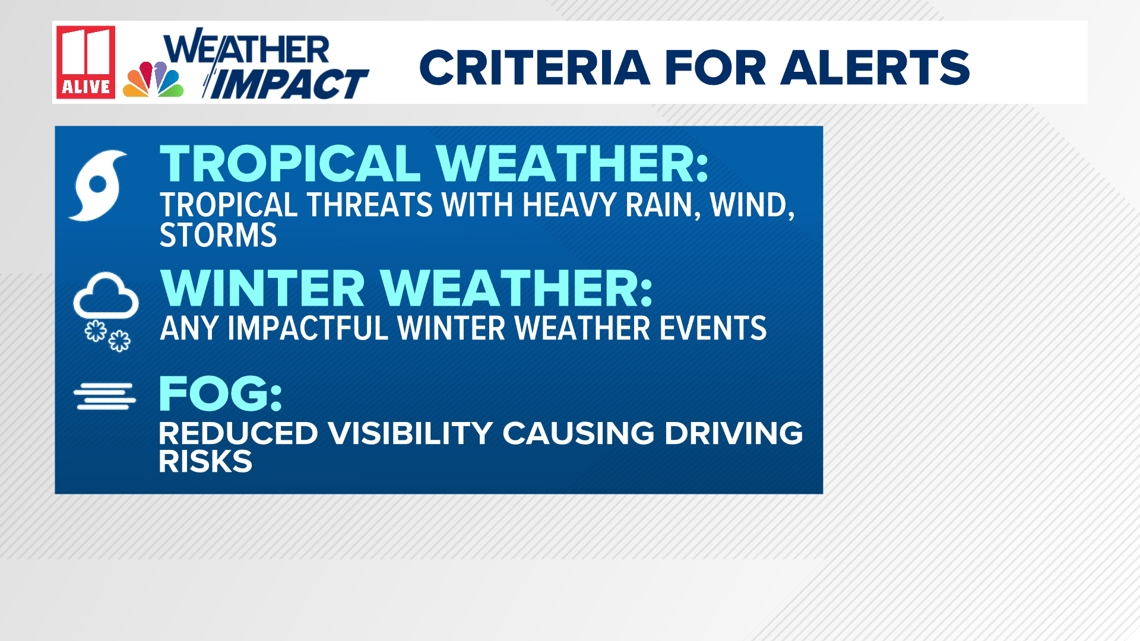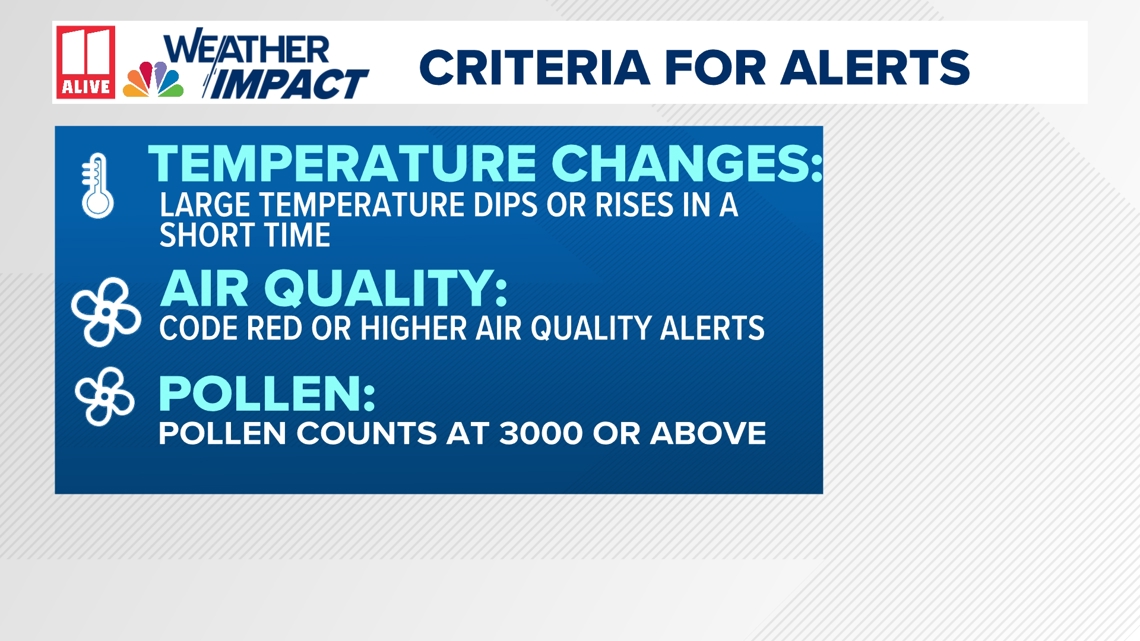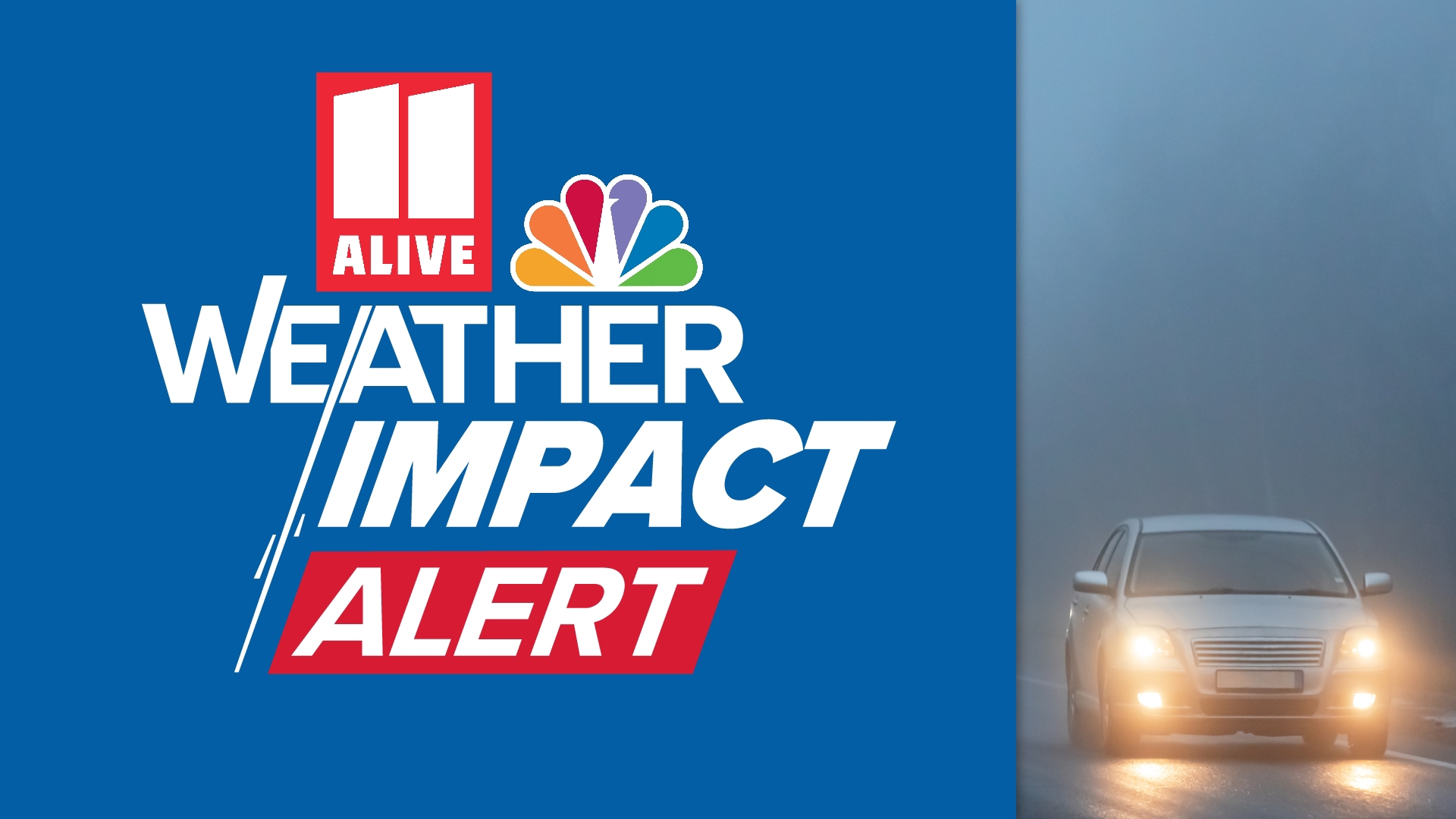ATLANTA — We all know that the weather impacts us every day. Even a perfect day has some weather impacts. Maybe the sun it too bright for you. Maybe the temperatures aren't just right for you. We also know that there are some days that have weather impacts that are higher than others. 11Alive is improving our way of communicating those high-impact weather events by issuing 11Alive Weather Impact Alerts.
W-I-N approach
We're not only going to alert you of those high-impact weather events, but we are also going a step further. We will tell you WHEN they will occur, what type of IMPACTS they will cause, and what you NEED to do to keep your family safe. That W-I-N approach will be a winning strategy to protect your family.
Most Weather Impact Alerts will focus on day 1 through day 4 based on the meteorologist's confidence level. In some instances -- like in tropical outlooks, extreme temperatures shifts, etc. -- the meteorologist may feel confident enough to issue an alert beyond day 4.
How will you be notified of a Weather Impact Alert?
When the 11Alive Weather Impact Team identifies a particular weather threat, we will alert you on TV and on all of our digital platforms.
Your first thought may be about severe weather. Of course, we will alert you of all severe weather threats. But we will also alert you for other nuisance weather events that could alter your day to day activities.
So, here's a look at some of the criteria for when 11Alive Weather Impact Alerts will be issued:
Severe weather or storms
If meteorologists identify a potential severe storm system on the way, we will issue an alert. We will also consider convective outlooks from the Storm Prediction Center of level 2 or above, depending on the confidence level of the 11Alive Weather Impact Team. Severe storms have winds of 60mph or higher, hail quarter inch or higher and tornado risk (conditional).
Rain/Flooding
These are impactful rain events where heavy rain could cause flooding. Any specific rain amounts will depend on how saturated the ground is. Rain chances would need to be at 70% or greater or above, but it is also based on conditions.
Wind
High wind warnings or wind advisories where the ground is saturated and more trees could fall and increase the threat of power outages would initiate an alert. It all depends on the potential impacts of each wind event.


Fog
These cases would be more of a day-of or day-before issuance and include visibilities of less than 1/4 of a mile. We would consider different times between widespread fog vs. patchy fog. An alert may be issued day-of and for a short period until fog dissipates.
Tropical
Any tropical impacts with heavy rain, wind or storms from landfalling tropical systems. Meteorologists may feel confident issuing alerts days in advance, depending on timing of track and location of the forecast cone.
Winter Weather
When there is a chance of any snow/ice in the metro area or impactful snow/ice in higher elevations, a Weather Impact Alert will be issued.
Freeze warnings or frost advisories at the start of growing season or any late season cold snaps would also trigger an alert.


Temperature fluctuations
Large temperature dips or rises in a short period of time that will impact health, wardrobe and safety are included (freeze warnings, frost advisories are all conditional). Alerting would happen for any extreme hot or extreme cold temperatures.
Air quality and pollen
Conditional on severity. More of a day-of or day-before issuance.


We will also consider times of extreme drought and fire danger situations.
Any upcoming alerts will be our focus to help you prepare and plan in order to keep you and your family safe.

